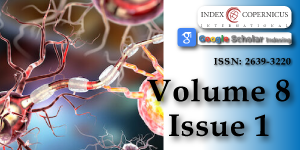A Strength-based Approach to Achieving Academic Success for Individuals with Autism Spectrum Disorder (ASD)
Main Article Content
Abstract
Qualitative research enabled us to explore the personal perceptions and institutional factors that facilitated academic success, as well as challenges, of a sample of 40 academically talented students with autism spectrum disorder (2e/ASD) who were enrolled in highly competitive colleges and universities in the United States. We explored their high school academic and social experiences, their college transition, parental views of their talents and disabilities, as well as college service providers’ opinions about their academic progress and needs. We identified some specific strength-based teaching and instructional strategies and academic experiences that students reported as contributing to their academic success during high school including challenging and advanced classes, use of strengths-based learning strategies (like independent study, and positive relationships with teachers and counselors. We also found that the level of disability support offered by the college was an important consideration for the academic success of this population, as was an understanding of the laws and regulations that apply and don’t apply when students with disabilities attend college.
Article Details
Copyright (c) 2024 Reis SM, et al

This work is licensed under a Creative Commons Attribution 4.0 International License.
Charman T, Pickles A, Simonoff E, Chandler S, Loucas T, Baird G. IQ in children with autism spectrum disorders: data from the Special Needs and Autism Project (SNAP). Psychol Med. 2011 Mar;41(3):619-27. doi: 10.1017/S0033291710000991. PMID: 21272389.
Gelba NW, Cascio AA, Madaus JW, Reis SM. A systematic review of the research on gifted individuals with autism spectrum disorder. Gifted Child Quarterly. 66(4): 266–276. https://doi.org/10.1177/00169862211061876
Reis SM, Baum SM, Burke E. An operational definition of twice-exceptional learners: Implications and applications. Gifted Child Quarterly. 2014; 58(3): 217–230. https://doi.org/10.1177/0016986214534976
Cain M, Kaboski J, Gilger J. Profiles and academic trajectories of cognitively gifted children with autism spectrum disorder. Autism: The International Journal of Research and Practice. 2019; 23(7): 1663–1674. https://doi.org/10.1177/1362361318804019
Gelbar NW, Shefyck A, Reichow B. A comprehensive survey of current and former college students with autism spectrum disorders. Yale J Biol Med. 2015 Mar 4;88(1):45-68. PMID: 25745374; PMCID: PMC4345538.
Billstedt E, Gillberg C, Gillberg C. Autism after adolescence: Population-based 13- to 22-year follow-up study of 120 individuals with autism diagnosed in childhood. Journal of Autism and Developmental Disorders. 2005; 35(3): 351-360. https://doi.org/10.1007/s10803-005-3302-5
Howlin P, Goode S, Hutton J, Rutter M. Adult outcome for children with autism. J Child Psychol Psychiatry. 2004 Feb;45(2):212-29. doi: 10.1111/j.1469-7610.2004.00215.x. PMID: 14982237.
Reis SM, Gelbar NW, Madaus JW. Understanding the Academic Success of Academically Talented College Students with Autism Spectrum Disorders. J Autism Dev Disord. 2022 Oct;52(10):4426-4439. doi: 10.1007/s10803-021-05290-4. Epub 2021 Oct 21. PMID: 34676485; PMCID: PMC9508198.
Madaus J, Cascio A, Delgado J, Gelbar N, Reis S, Tarconish E. Improving the transition to college for 2eASD students: Perspectives from college service providers. Career Development and Transition for Exceptional Individuals. 2022. https://doi.org/10.1177/21651434221091230
Madaus J, Reis S, Gelbar N, Delgado J, Cascio A. Perceptions of factors that facilitate and impede learning among twice-exceptional college students with autism spectrum disorder. Neurobiol Learn Mem. 2022 Sep;193:107627. doi: 10.1016/j.nlm.2022.107627. Epub 2022 May 14. PMID: 35580740.

